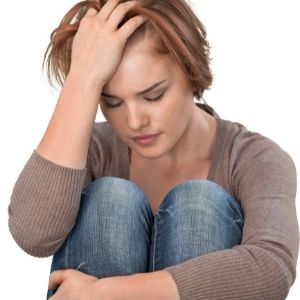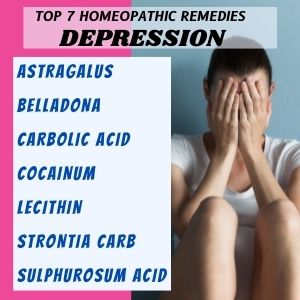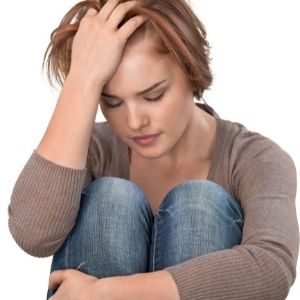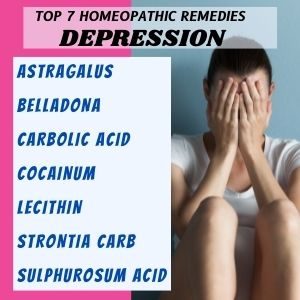Depression is a complex mood disorder that affects how a person feels, thinks, and behaves. It can lead to a variety of emotional and physical problems, making it difficult for an individual to carry out daily tasks. Depression is not just feeling “sad”—it is a persistent and deep feeling of hopelessness, sadness, and loss of interest in activities that once brought joy. It can be triggered by a variety of factors and can affect anyone, regardless of age, gender, or background.

The exact cause of depression is not fully understood, but several factors can contribute to its development:
Family History of Mental Disorders: Genetics play a role in the likelihood of developing depression. If a close family member has had depression, the risk may be higher.
Mental Trauma: Past traumatic events, such as abuse, the loss of a loved one, or significant life changes, can trigger depression.
Altered Levels of Neurotransmitters: Chemicals in the brain, such as serotonin and dopamine, play a key role in mood regulation. Imbalances in these chemicals can lead to depressive symptoms.
Stressful Events: Life stressors like financial difficulties, work stress, relationship problems, or major life transitions (e.g., divorce, moving, or changing jobs) can trigger depression.
Substance Abuse: Alcohol, drug abuse, and smoking can exacerbate or even contribute to depression.
Postpartum Depression: Some women experience depression after childbirth due to hormonal changes, emotional adjustments, or the stress of caring for a newborn.
Premenstrual Syndrome (PMS): Hormonal fluctuations in women during the menstrual cycle can cause mood swings and depressive feelings.
Medical Conditions: Certain medical conditions like stroke, heart attack, chronic illnesses, or long-term pain can contribute to or worsen depression.
The symptoms of depression can vary greatly from person to person, but they often include:
For some individuals, depression can lead to more severe outcomes, such as substance abuse or suicidal thoughts if left untreated.
Traditional treatments for depression typically involve a combination of psychotherapy (such as cognitive-behavioral therapy) and medications like antidepressants (e.g., SSRIs, SNRIs). In more severe cases, hospitalization may be required.

Homeopathy offers a holistic and individualized approach to managing depression. Some of the most commonly used homeopathic medicines include:
Astragalus: Known for its ability to address feelings of deep fatigue and weakness associated with depression.
Belladonna: Used for individuals who experience sudden and intense mood swings, agitation, or restlessness.
Carbolic Acid: Often prescribed when depression is linked to feelings of being physically drained, with an overwhelming sense of exhaustion.
Cocainum: Typically indicated when depression is accompanied by feelings of despair, intense irritability, and an inability to focus.
Lecithin: Used to treat individuals experiencing cognitive and emotional sluggishness, often resulting from depression.
Strontia Carb: Helps those who feel overwhelmed by responsibilities and pressures, leading to feelings of depression.
Sulphurosum Acid: Best suited for individuals who feel disconnected from life, indifferent, and lack a sense of purpose or joy.
These remedies are often tailored to the individual after a thorough examination by a professional homeopathic doctor.
Homoeopathy takes a comprehensive and holistic approach to treating depression. The treatment is customized based on the individual’s symptoms, medical history, and emotional state. The goal is to address the root causes of depression, promoting mental and emotional balance.
By choosing the right homeopathic medicine, HomoeoCARE works on both the mental and physical planes, helping patients regain their positive outlook on life and emotional well-being. The homeopathic approach is gentle, natural, and non-invasive, making it an effective alternative or complementary treatment option.
For individuals experiencing symptoms of depression, seeking guidance from a professional homeopathic doctor can offer a path toward healing and lasting relief. Through a detailed consultation, the doctor can assess both mental and physical symptoms, ensuring that the treatment aligns with the patient’s unique needs.
If you or someone you know is struggling with depression, remember that there are effective treatment options available, and you don’t have to face it alone.

